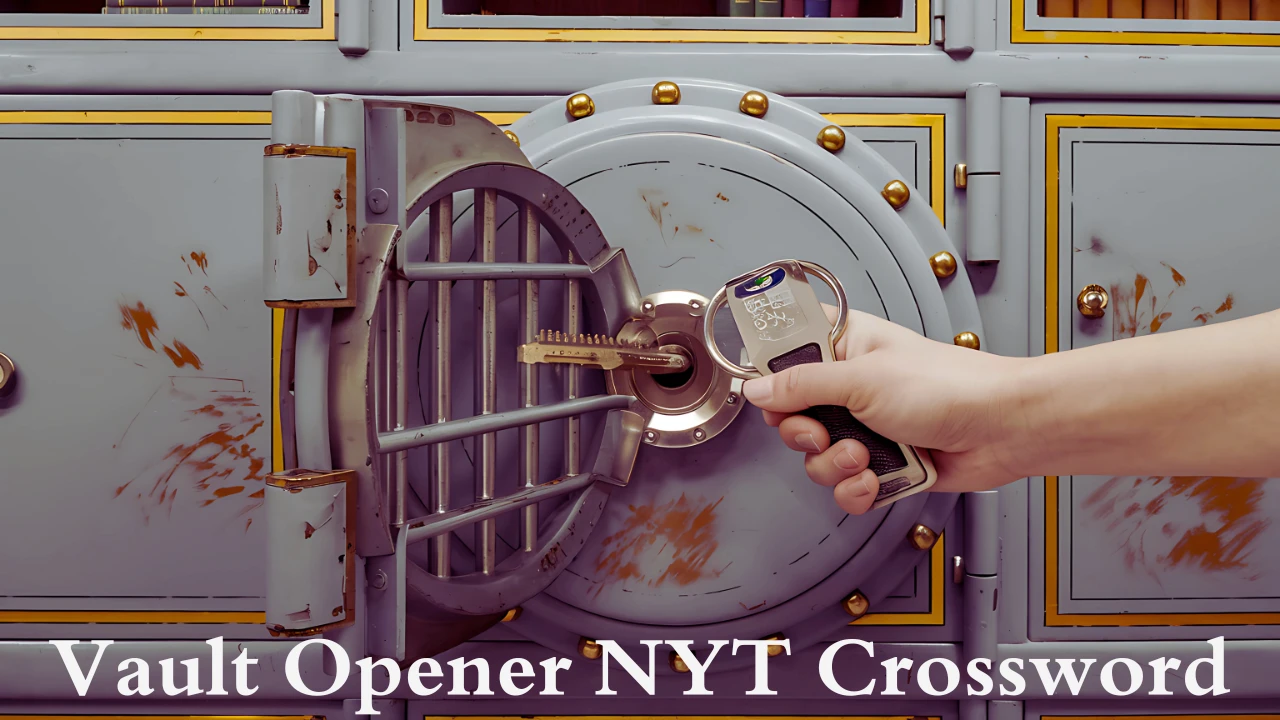Have you ever come across the clue “Vault Opener” in the New York Times Crossword and found yourself completely stumped? Even experienced solvers sometimes struggle with this deceptive phrase. Understanding the logic behind this type of clue can make all the difference in tackling future puzzles with confidence.
Understanding the Vault Opener NYT Crossword
What Makes the NYT Crossword Special?
For many, solving the NYT Crossword is a daily ritual, much like enjoying a morning cup of coffee. This beloved puzzle is known for its inventive clues, clever wordplay, and diverse range of themes that keep solvers engaged and challenged.
Why Is It So Addictive?
The thrill of cracking a tough clue, the sense of accomplishment in completing a grid, and the opportunity to expand one’s vocabulary all contribute to its lasting appeal. Many solvers enjoy the mental workout it provides, making it both entertaining and beneficial for cognitive function.

Essential Crossword Terminology
To excel in crossword solving, it’s important to understand key terms such as anagrams, hidden words, and double definitions. “Vault Opener” is a type of clue that relies on either a direct or metaphorical interpretation, making it an interesting challenge.
The Meaning Behind “Vault Opener”
What Does “Vault Opener” Represent?
In the world of crossword puzzles, “Vault Opener” typically hints at something used to unlock or access a vault. The answer could be literal, like a “key,” or something more abstract, such as a “password” or “code.”
Common Answers and Synonyms
This clue often leads to words like:
- Key
- Code
- Entry
- Combination
- Lock
Recurring Puzzle Themes
Clues related to “Vault Opener” frequently appear in puzzles with themes connected to:
- Banking – Clues may relate to security access terms.
- Gymnastics – The word “vault” can also refer to an apparatus used in the sport.
- Security & Mystery – Puzzles involving passwords, safes, or secret access points.

How Often Does It Appear?
While not an everyday occurrence, “Vault Opener” is a recurring clue in the NYT Crossword, particularly in puzzles focused on financial or sports-related themes.
Breaking Down the Clue
How to Interpret “Vault Opener”
Crossword clues often contain layers of meaning. “Vault Opener” could refer to a tangible object, a security term, or even a play on words. Recognizing these possibilities can guide solvers toward the correct answer.
Alternative Answers to Consider
Instead of focusing on one possible answer, consider synonyms or related words. Some common alternatives include:
- “Pin”
- “Access”
- “Token”
Clue-Spotting Tips
To identify a “Vault Opener” clue, check for hints in the surrounding puzzle theme. If the puzzle revolves around finance, think of security-related terms. If it features sports, consider gymnastics-related words.
Strategies for Solving “Vault Opener” Clues
Start with Easy Clues
Solving simpler clues first can help reveal letters that make deciphering the tougher ones, like “Vault Opener,” much easier.
Use Context to Your Advantage
Pay attention to the theme of the puzzle. If the puzzle’s focus is on banking, the answer might be “code” or “pin.” If it leans toward gymnastics, consider terms like “spring.”
Leverage Wordplay and Puzzle Themes
NYT crosswords often use puns or double meanings. Recognizing these patterns can speed up the solving process.
Why “Vault Opener” Is a Unique Clue
A Longstanding Crossword Staple
This clue has been part of crossword puzzles for years, and its clever use of language keeps it fresh and engaging.

The Appeal of Wordplay
Puzzles thrive on wordplay, and “Vault Opener” is a prime example of a clue that forces solvers to think beyond the obvious.
Notable Instances in Crossword History
Some past NYT Crossword clues have included:
- “Gymnast’s starting move”
- “Bank access essential”
Expert Tips for Solving NYT Crosswords
Make Crossword Solving a Habit
Practicing regularly can sharpen your ability to recognize patterns and common crossword conventions.
Develop Pattern Recognition Skills
Learning to spot commonly used words and answer structures can drastically improve solving speed.
Join Crossword Communities
Engage with online groups, forums, and social media discussions to learn new strategies and discuss tricky clues.
Helpful Tools and Resources
Best Apps and Websites
Using Crossword Dictionaries
Specialized dictionaries can provide quick access to common answers for challenging clues.
Engaging with Online Communities
Platforms like Reddit, Discord, and Facebook groups offer valuable tips, discussions, and puzzle-solving camaraderie.
Conclusion
Deciphering “Vault Opener” clues in the NYT Crossword is a rewarding challenge that enhances problem-solving skills and expands vocabulary. By understanding common answer patterns and applying strategic thinking, solvers can tackle even the trickiest crossword clues with confidence. Happy solving!
FAQs
1. Why is “Vault Opener” a difficult clue?
It requires solvers to consider both literal and figurative meanings.
2. What are common answers for “Vault Opener”?
Key, Code, Entry, Combination, and Lock.
3. How does the NYT Crossword compare to others?
It is known for its clever wordplay and creative themes, making it one of the most challenging and rewarding puzzles.
4. What tools help solve crosswords faster?
Apps, dictionaries, and online communities.
5. Do crossword puzzles improve cognitive skills?
Yes! They enhance vocabulary, memory, and problem-solving abilities.
6. How frequently does “Vault Opener” appear?
While not a daily occurrence, it is a familiar clue in security or sports-related puzzles.
7. Are crossword-solving apps useful?
Yes, they offer hints, timers, and analytics to help improve solving skills.
8. What are similar crossword puzzles to the NYT Crossword?
The Guardian, LA Times, and USA Today crosswords provide similar challenges.

